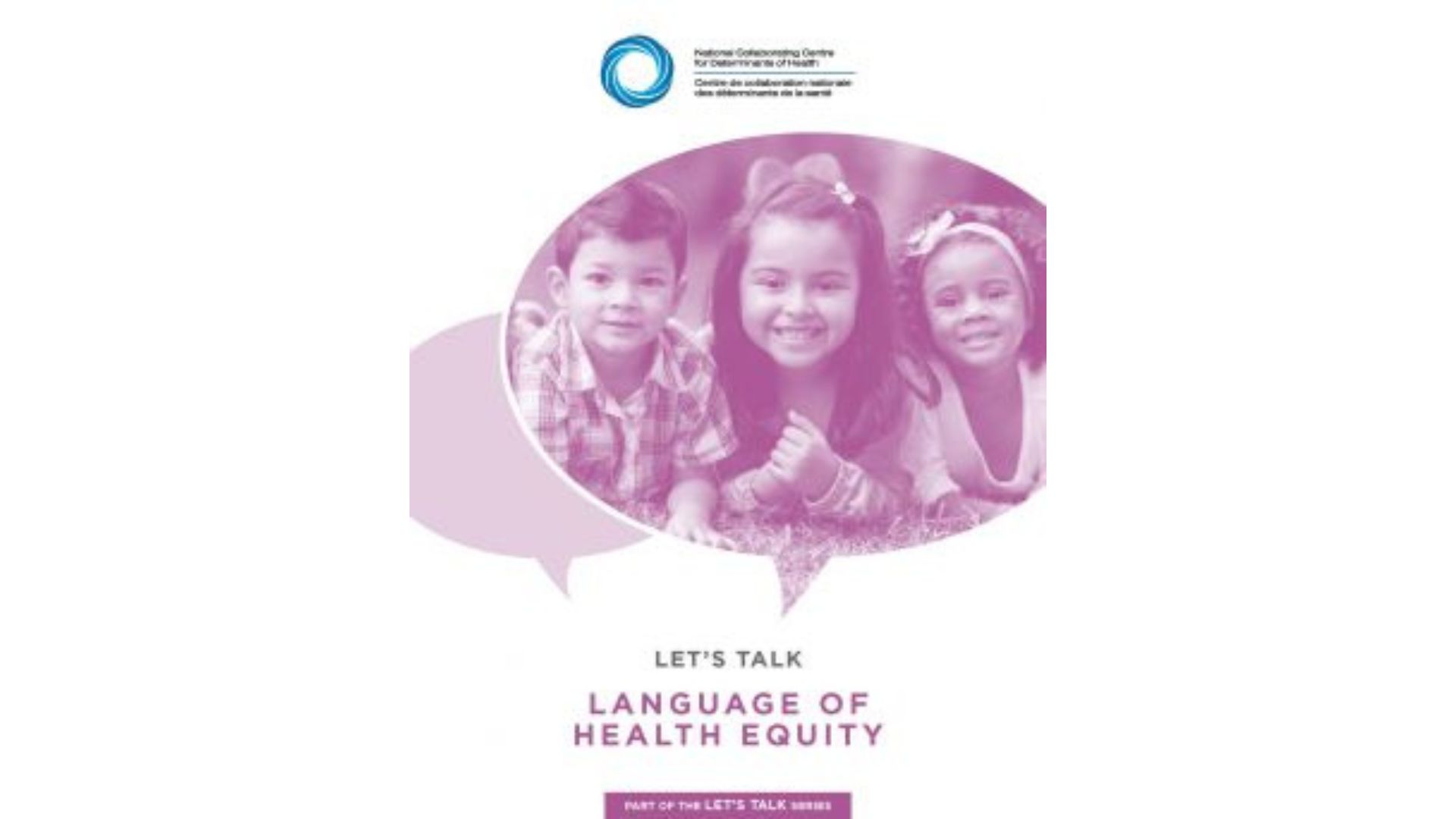Guide: Let's Talk: Language of Health Equity

This installment of the Let’s Talk series supports intentional reflection on the language used to describe equity and people who live with inequities. It explores how power and culture are baked into language. Examples of terms commonly used that reinforce power imbalances and alternatives for terms that redistribute power are highlighted.
This document describes three principles of inclusive health equity language that drives action for health equity: person-first, system-focused, and asset–based.
Commonly used terms that reinforce stigma, blame, and deficit, are discouraged in public health practice and policy and are highlighted in this resource. These terms include equity-seeking, marginalized, vulnerable, stakeholder, resilient, empower and more. This resource provides alternative terms to consider that follow the principles of inclusive health equity language.
Considerations for practice are described, including how the language we use both influences and is influenced by our values. Discussion questions encourage reflection on individual social position, personal and organizational beliefs about causes of health outcomes, consideration of personal values, and examination of language used in organizational practices and documents.
Use this resource to:
- Reflect on your personal values, beliefs, privilege, and social position, and how this influences the language you use to describe health equity issues.
- Examine organizational workplans, policies, strategic plans, and other guiding documents – identify terms used to describe health equity and communities, and replace with options that are more inclusive.
- Consider how you can engage community members in identifying and developing the health equity language used in your organization.
-
By
National Collaborating Centre for Determinants of Health (NCCDH)
-
Published
Jun 16, 2023
-
Subject Area
- Social Connectedness & Social Isolation
- Health & Wellness - General
- Health & Wellness - Cognitive & Mental
- Information, Referral, & Advocacy
- Ageism
-
Audience
- Government (Politicians, Policy Makers) and Health Authorities
- Service Providers (Non-profits, Community Organizations, Local government)
- Caregivers, Seniors & Volunteers
- Government
- Health Authorities
- Funders
-
Category
- Best Practices
- Evidence-based & emerging practices
- Policy, Planning, & Procedures
- Research & Evidence
- Research & Reports
Newsletter
Sign up for the Healthy Aging CORE Alberta e-news to keep up-to-date with activity from the platform and the Community-Based Seniors Services (CBSS) sector across the province.
